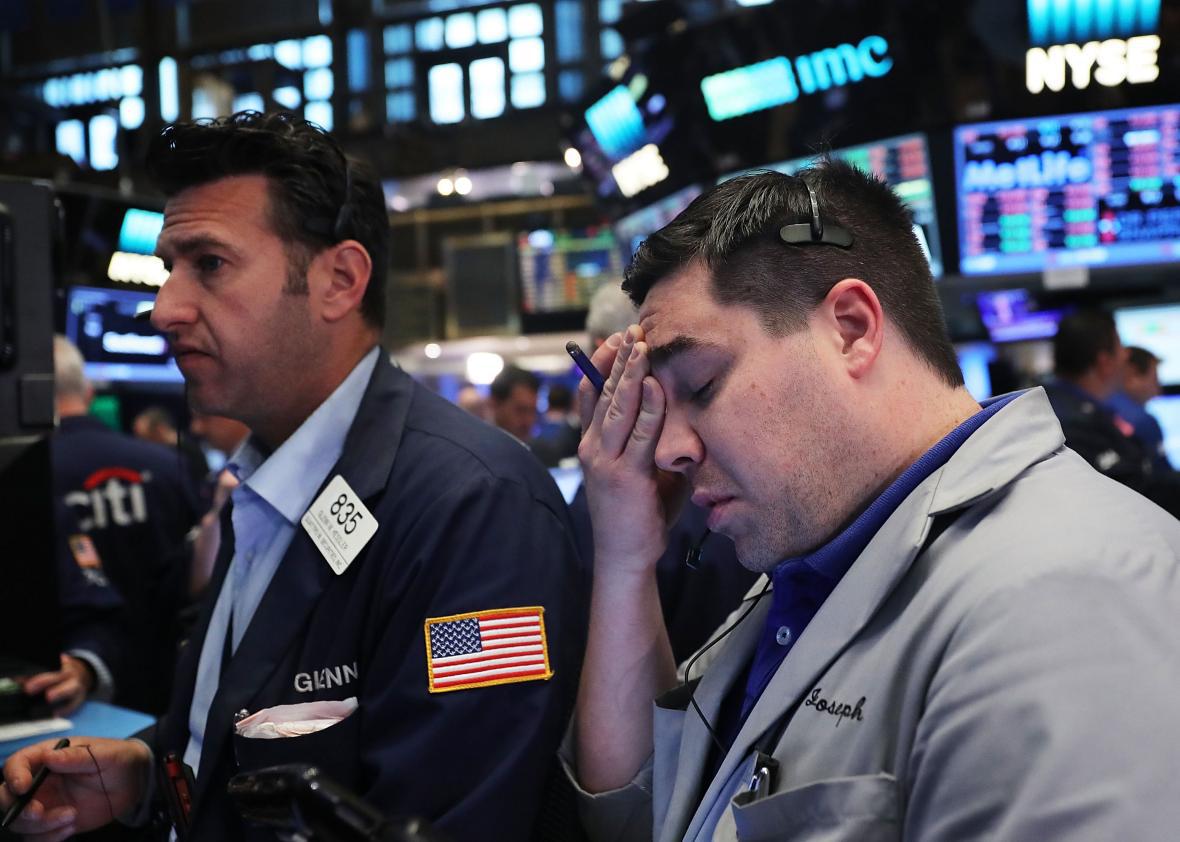In Wednesday’s wee hours, as Donald Trump looked increasingly certain to emerge as the next president of the United States, stock markets began crashing. The Dow futures are down by more than 600 points, or 4 percent, as I type. (They were even briefly halted when the fall hit 5 percent.) The world markets are not doing any better. Japan’s Nikkei is down by 5 percent, Hong Kong’s Hang Seng by almost 3 percent. The Mexican peso, which has acted as a surrogate for oddsmakers throughout much of the election given Trump’s rhetoric—rising when Clinton’s chances looked good, falling when Trump appeared ascendant—collapsed to a record low against the dollar Tuesday night.
It’s the sort of stuff that makes all the Trumpophobic investors I interviewed a few weeks ago look prophetic.
What happened?
Investors are notoriously averse to unpredictability, and an incoming Trump administration is nothing if not a major unknown. He’s campaigned on promises of cracking down on trade with Mexico and China, actions that could roil the world economy. As if that is not enough, many market makers simply don’t trust the man. He’s lost upward of $1 billion dollars of other people’s money on multiple failed investments and changes positions seemingly on a whim. His ethics are challenged even by the sometimes shady standards of those in the world of finance.
Many had already predicted stock market crashes if Trump won the White House. But what pundits forget is that somewhere around half of Americans don’t own as much as a single share of stock. Those that do invest aren’t exactly flush—the median family headed by someone of prime working age has about $5,000 in its retirement accounts. The woes of the investing class are not exactly high on their list of worries, and so promises of Wall Street losses were hardly enough to deter a decent chunk of Trump’s base from voting for him.
It could be this global slide is all an overreaction. The U.K. stock market index—the FTSE—crashed after the surprise Brexit vote but has since rebounded. The pound, which also fell dramatically, is still down. But that weakness has created a new group of corporate winners, including famed trench-coat fashion line Burberry, which mainly sells in outside the U.K. and is, as a result, benefitting from the currency’s weakness. It’s possible the same thing could happen here. If the dollar falls, it could boost United States imports. If housing prices take a hit, as in London, it could benefit the many people currently shut out of buying in pricey areas like New York, Los Angeles, and the Silicon Valley. The market fall could be temporary; it might simply be a panicked reaction. We just don’t know.
One thing is for sure: Those working on Wall Street will look back on the Obama era with nostalgia.
